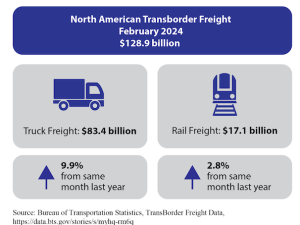Testifying on behalf of the American Trucking Associations before the Subcommittee on Highways and Transit of the House Committee on Transportation and Infrastructure, Michael Smid, President and CEO of YRC North American Transportation, said fundamental changes that permit increased trucking industry productivity will reduce congestion on the nation's highways, reduce energy use, and improve highway safety and air quality.
"Over the previous quarter century, the trucking industry has made continuous improvements that have allowed its customers to significantly reduce inventories and create manufacturing and supply chain efficiencies that have saved the US economy billions of dollars, increased salaries, slowed consumer price increases and created countless jobs," Smid said. "Any disruption to the movement of freight on our nation's highway systems will jeopardize these gains."
Federal law that governs truck productivity has not been updated since 1982. Yet since then, truck tonnage has increased nearly 40%, driven by a 32% increase in the US population and 82% growth in Gross Domestic Product.
While other freight transportation modes have adapted their equipment to meet these growing demands, the capacity of the trucking industry has remained virtually stagnant.
Under current federal and state truck regulations, the growth in freight demand will require a 41% increase in the number of commercial trucks, adding nearly three million trucks to the nation's roads, Smid testified.
Smid highlighted that use of more productive trucks will limit the need for additional trucks as well as allow Congress and states to avoid some of the significant costs required to improve highway conditions and to address highway congestion.







